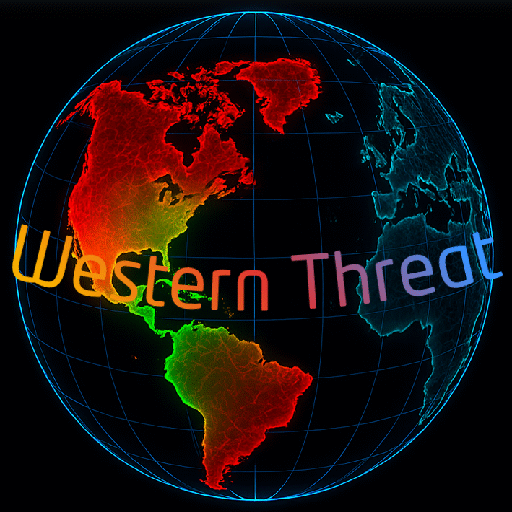In the contemporary geopolitical landscape, the interaction between Islamic and Christian nations has become a focal point of discussion, especially in terms of security, cultural identity, and social cohesion. While the vast majority of Muslims are peaceful and law-abiding, there exist unique challenges posed by radical elements within Islam that can threaten the stability of Christian-majority nations. This article explores these challenges, focusing on the implications for Western societies and the long-term consequences of ignoring these vulnerabilities.
Historical Context: A Long-standing Friction
The relationship between Islam and Christianity has been marked by periods of conflict and cohabitation. Historical events such as the Crusades and the Reconquista exemplify the longstanding tensions that have shaped interactions between these two faiths. However, the dynamics of this relationship have evolved significantly in the modern era.
As the world entered the 20th century, the decolonization of Islamic nations and the emergence of political Islam marked a shift in how these societies interact with Western powers. The Iranian Revolution of 1979, which established a theocratic regime, set a precedent for the rise of radical Islamic movements that challenge Western norms and values.
The Rise of Radical Islam
In recent decades, the emergence of radical Islamic groups such as Al-Qaeda, ISIS, and Boko Haram has posed direct threats to Western nations. These groups exploit political, social, and economic grievances to recruit followers and carry out violent acts. The implications for Christian nations are profound:
- Increased Terrorism: The threat of terrorist attacks in Western countries has escalated due to the activities of radicalized individuals and organized groups.
- Social Fragmentation: The influx of refugees and migrants from Muslim-majority countries has led to cultural clashes and tensions within communities.
- Political Polarization: Rising Islamophobia and anti-immigrant sentiments have led to a fracturing of social cohesion in many Western societies.
Case Study: The Impact of Migration
One of the most visible manifestations of the tensions between Islamic and Christian cultures is the migration crisis that began in the early 2010s. Millions of refugees from conflict-ridden Muslim-majority countries sought asylum in Europe, leading to significant demographic changes. While many of these individuals fled violence and persecution, the sudden influx has also strained social services and ignited debates over cultural assimilation.
Countries like Germany and Sweden have experienced challenges in integrating large numbers of Muslim migrants, leading to social unrest and the rise of far-right political movements. For instance, the emergence of the Alternative for Germany (AfD) party capitalized on fears surrounding immigration and cultural dilution, showcasing how migration can polarize public opinion.
The Ideological Challenge
Radical Islam presents not only a physical threat but also an ideological one. The core tenets of radical Islamist ideology often conflict with the values upheld by Christian nations, such as individual liberty, gender equality, and freedom of expression. These ideological differences can manifest in various ways:
- Rejection of Secularism: Radical Islamists often reject the secular frameworks that govern Western societies, viewing them as corrupt and morally bankrupt.
- Gender Inequality: The treatment of women under radical interpretations of Islam stands in stark contrast to Western ideals of gender equality.
- Freedom of Expression: The intolerance for criticism of Islam, as seen in reactions to cartoons or artistic expressions, poses a challenge to Western notions of free speech.
Case Study: The Charlie Hebdo Attack
The 2015 attack on the French satirical magazine Charlie Hebdo is a poignant example of the ideological clash between radical Islam and Western values. The attack, which left twelve people dead, was a direct response to the magazine’s depictions of the Prophet Muhammad. This incident underscored the tensions surrounding freedom of expression and the lengths to which radical elements will go to enforce their interpretations of Islam.
Long-term Consequences for Stability
As these ideological and cultural challenges persist, the long-term consequences for Christian nations could be severe. The erosion of social cohesion, increased polarization, and the potential for civil unrest are significant risks that cannot be overlooked. Furthermore, the rise of radical Islam could lead to:
- Increased Surveillance: Governments may implement more stringent surveillance measures and restrictions on civil liberties in the name of national security.
- Legitimization of Far-Right Movements: The fear of radical Islam can empower far-right political movements, leading to a backlash against Muslim communities and further marginalization.
- Potential for Civil Conflict: If tensions escalate, the risk of civil conflict between different cultural and religious groups could become a reality, threatening the very fabric of society.
The Path Forward: Balancing Security and Integration
Addressing the unique threat posed by radical Islam to Christian nations requires a multifaceted approach. It is essential to balance national security concerns with the values of tolerance and integration that define Western societies. Key strategies may include:
- Promoting Interfaith Dialogue: Encouraging discussions between Muslim and Christian communities can foster understanding and reduce tensions.
- Supporting Moderate Voices: Empowering moderate Islamic leaders and organizations can help counter radical narratives and promote a more peaceful interpretation of Islam.
- Implementing Effective Integration Policies: Developing policies that promote cultural assimilation while respecting diversity can help mitigate social fragmentation.
Conclusion
The interaction between Islam and Christian nations is a complex issue that requires careful consideration of historical, ideological, and social factors. While radical elements pose a unique threat to the stability of Christian-majority countries, it is crucial to approach this challenge with a balanced perspective that seeks to foster understanding and cooperation rather than division. The future of Western societies may hinge on their ability to navigate these challenges effectively, ensuring that the values of liberty, equality, and social cohesion endure.
For further analysis on geopolitical threats and vulnerabilities facing the West, explore more at WesternThreat.net.
Judge me by my looks at your peril! Be warned, I may be cute, but I’m dangerous. I enjoy analyzing modern threats with a focus on technology through a historical lens.
